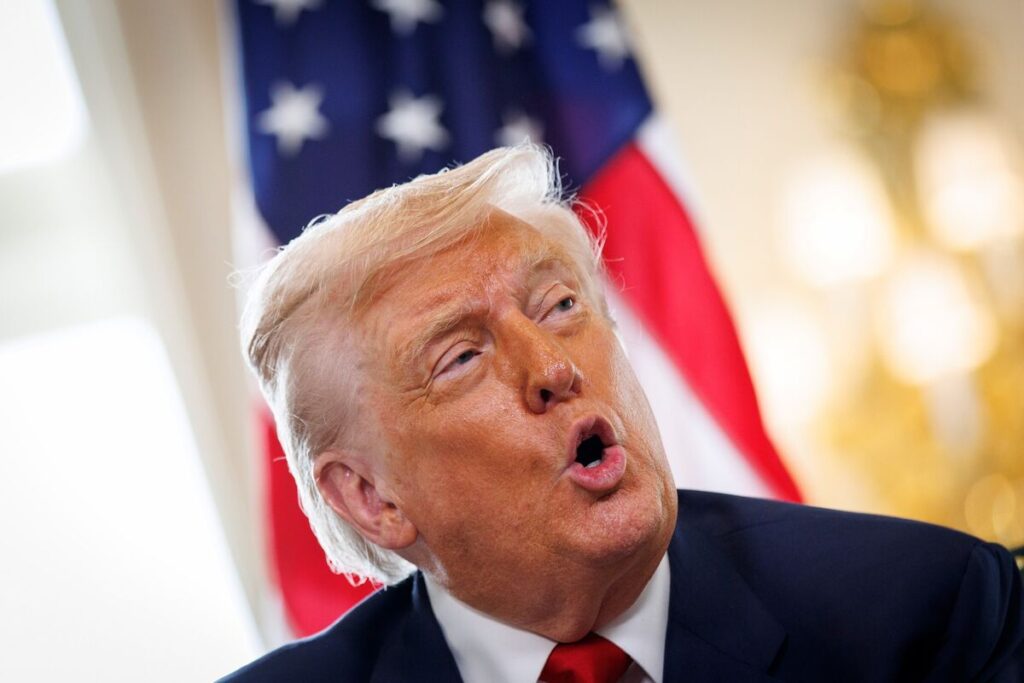
US President Donald Trump is taking decisive steps to apply pressure on Vladimir Putin regarding the ongoing conflict in Ukraine. Following the announcement of an additional 25% tariff on Indian purchases of Russian oil, Trump’s administration is reportedly considering further sanctions aimed at disrupting Moscow’s covert fleet of oil tankers, which are crucial for circumventing international restrictions.
The new tariffs, imposed on March 15, 2024, target India’s significant imports of Russian oil, which have persisted despite widespread sanctions from the United States and European nations. According to sources familiar with the discussions, the administration is also evaluating measures against several entities that facilitate the operations of this shadow fleet. This fleet plays a vital role in enabling Russia to continue exporting oil amid the sanctions imposed in response to its actions in Ukraine.
In a related development, Vladimir Putin met with US envoy Steve Witkoff at the Kremlin earlier today. While specific details of their discussions remain undisclosed, a Russian official indicated that they exchanged “signals” concerning the situation in Ukraine. This meeting underscores the ongoing diplomatic efforts to address the conflict, which has drawn international condemnation and led to severe economic repercussions for Russia.
Shadow Fleet and Its Significance
The shadow fleet has become a critical component of Russia’s strategy to evade sanctions and finance its military operations. Andriy Yermak, chief of staff to Ukrainian President Volodymyr Zelenskiy, emphasized the importance of targeting these tankers, stating, “The shadow tanker fleet is the backbone of Russia’s sanctions evasion and war financing.” By disrupting this fleet, the US aims to reduce Russia’s ability to fund its military activities in Ukraine.
India’s ongoing purchases of Russian oil have attracted attention, particularly as many countries align against Russia’s actions. The Indian government has defended its position, citing energy security and the need to provide affordable fuel to its population. Nonetheless, the new tariff reflects a growing urgency among Western nations to curb Russia’s revenue streams from oil sales.
As tensions escalate, the international community watches closely to see how these new measures will affect both the geopolitical landscape and global oil markets. Experts suggest that the pressure from the US could lead to a reevaluation of relationships surrounding energy imports, particularly for countries like India that have relied heavily on Russian oil.
The next steps from the Trump administration will likely shape the future of US-India relations, as well as the broader response to Russia’s actions in Ukraine. The situation remains fluid, with potential for further developments in the coming days and weeks.







